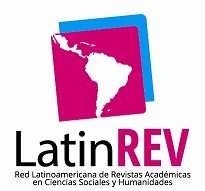Reason or Revolution - rescuing the Popper-Kuhn debate in the history of science
DOI:
https://doi.org/10.11606/khronos.v0i6.153306Keywords:
Popper-Kuhn debate, Scientific revolutions, History of science, Philosophy of scienceAbstract
The critical fortune of the Popper-Kuhn debate about the progress of science has followed different paths in the academic environment. In the scenario of Brazilian reception Karl Popper’s falibilist conception of Science is recurrently taken as the best expression of the scientific method. Equally vague and dogmatic are the frequent references to Thomas Kuhn's positions isolated from their argumentative context especially in the Humanities. The reconstruction of the main arguments in this interlocution can shed light on issues still present in the history and philosophy of science and maybe collaborate in the theoretical foundation of research and teaching in a variety of disciplinary fields.
Downloads
Downloads
Published
Issue
Section
License
Authors who publish in this journal agree to the following terms:
- Authors retain the copyright and grant the journal the right to first publication, with the work simultaneously licensed under the Creative Commons Attribution License in the "Attribution-NonCommercial 4.0 International" (CC BY-NC 4.0) modality that allows sharing of the work with acknowledgment of authorship and initial publication in this magazine.
- Authors are authorized to assume additional contracts separately, for non-exclusive distribution of the version of the work published in this journal (eg, publishing in institutional repository or as a book chapter), with acknowledgment of authorship and initial publication in this journal.
- Authors are allowed and encouraged to publish and distribute their work online (eg in institutional repositories or on their personal page) at any point before or during the editorial process, as this can generate productive changes, as well as increase impact and citation of the published work (See The Effect of Open Access).
- Any doubts or complaints about copyright must be directed to the Editorial Board or qualify and express themselves in accordance with the guidelines of the Committee on Publications Ethics (COPE).





